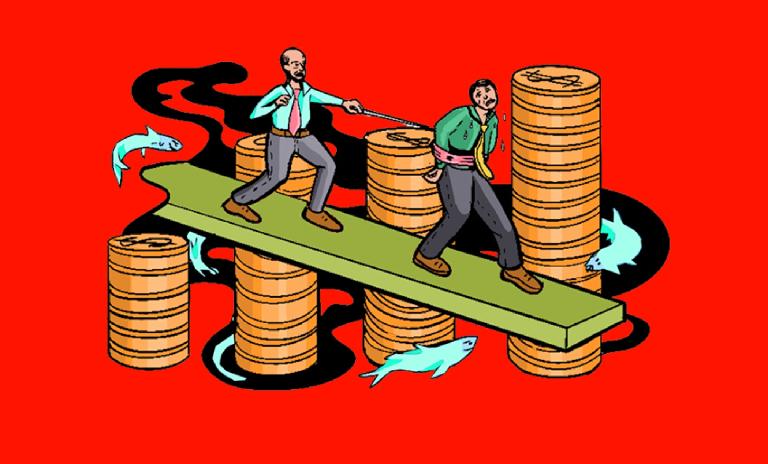The circus of transformation
![{[downloads[language].preview]}](https://www.rolandberger.com/publications/publication_image/ta41_en_cover_download_preview.jpg)
Think:Act Magazine features experts and authors on topics including company reinventions, ethical business, resilience and innovation strategies.



by Bennett Voyles
Illustrations by Eva Redamonti
Want to manage change better? Look no further than the startup world, where pivots are standard practice. Noam Wasserman has dissected thousands of transformation attempts and distilled them into a set of rules for survival.
Transformation does not just happen. In the startup world of small teams, it depends a lot on people like you. On you, in fact. Entrepreneurship scholar Noam Wasserman argues that for small organizations that constantly need to change, it pays to know and avoid the most common mistakes made by thousands of little transformers. How a budding venture responds to frequent change holds lessons for larger organizations as well.
Wasserman, who worked at Harvard Business School and currently is dean of the Sy Syms School of Business at Yeshiva University in New York, tapped into the power of negative thinking in two books: The Founder’s Dilemmas and Life is a Startup. He analyzed data on nearly 10,000 founders of more than 3,600 US startups and concluded: "If entrepreneurship is a battle, most casualties stem from friendly fire or self-inflicted wounds." Here are 10 points drawn from Wasserman’s work on how to get your transformation right – or at least less wrong:

Pivots can require personnel changes and founders may need to accept that they are the ones who should walk the plank. One study of 6,130 US startups showed that companies whose founder stays in control beyond product development tend to underperform. Often, a different kind of leadership is needed to grow the company.
One of the most frequent problems among small startup teams is trying to be both rich and king. Founders who keep control of both the CEO position and the board of directors end up with equity stakes only 52% as valuable as those held by founders who gave up both the CEO position and board control.
"Trusting your gut doesn’t always yield the best results."
Founders often go into business with friends and family. But when founders bring in a family member or a friend who is not a coworker, the risk of departure of the founding CEO rises by 28.6%.
Trusting your gut doesn't always yield the best results, particularly when it comes to a leader's personal career choices. Studies show that entrepreneurs earn 35% less over a 10-year period than they could have earned in a corporate job.
Love your team? It may not be a good sign. One study of symphony orchestras found that professional musicians who didn't get along well personally performed better than orchestras where people liked each other. A little friction, it turns out, can promote team performance and member learning.
An analysis of nearly 12,000 venture capital deals shows collaboration between VCs in different firms with the same ethnic background cost a 20% reduction in performance on average. So, don't turn to someone who looks just like you.

A test crisis helps build the capability to handle challenges. Resilient optimists tend to do best. A study of an insurance company discovered its most optimistic salespeople outsold the least optimistic by 88%.
"It's sometimes invaluable to have somebody push back on you."
For startups, it can be easy to stick to a plan and hard to second-guess it. Set up particular checkpoints in advance and then change the plan if the results don't align with expectations. In a study of 22,000 venture-backed companies between 1987 and 2008, 34% either went bankrupt or were not expected to return money to shareholders.
The most effective founders raise tough issues early. The ones who know how to fight well tend to manage better, particularly when they learn to go out of their way to find the truth. "It's sometimes invaluable to have somebody push back on you," Wasserman says.
Unrealistic negativity is an approach that's been proven not to pay off, so don't make fear a controlling shareholder. The Global Entrepreneurship Monitor reports that 30-40% of people say fear of failure would prevent them from starting a business, disqualifying themselves before they even consider the opportunity.

![{[downloads[language].preview]}](https://www.rolandberger.com/publications/publication_image/ta41_en_cover_download_preview.jpg)
Think:Act Magazine features experts and authors on topics including company reinventions, ethical business, resilience and innovation strategies.
